
Privacy statement: Your privacy is very important to Us. Our company promises not to disclose your personal information to any external company with out your explicit permission.
Connector, CONNECTOR. Domestically referred to as connectors, plugs and sockets. Generally refers to electrical connectors. That is, a device that connects two active devices to transmit current or signals. Connectors are a component that our electronic engineering technicians often come into contact with. Its role is very simple: to bridge the communication between the blocked or isolated circuits in the circuit, so that the current flows, so that the circuit achieves the intended function. Connectors are an indispensable part of an electronic device. You will always find one or more connectors when you look at the path through which the current flows.
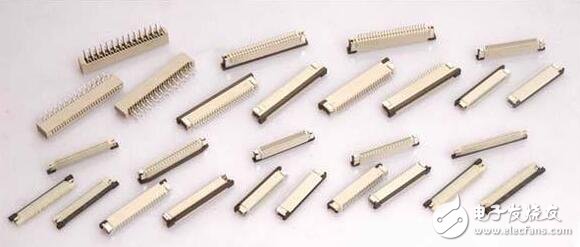
The form and structure of the connector are ever-changing. There are various types of connectors depending on the application object, frequency, power, and application environment. For example, the connector for lighting on the court and the connector for the hard drive, as well as the connector for igniting the rocket, are quite different. But no matter what kind of connector, it is necessary to ensure smooth and continuous current flow. In general terms, the connection of the connector is not limited to current. In today's rapid development of optoelectronic technology, in the optical fiber system, the carrier that transmits the signal is light, and the glass and plastic replace the wires in the ordinary circuit, but the optical signal Connectors are also used in the vias, which function the same as circuit connectors.
How the connector works:For the connector, you may not know more about it. The so-called connectors are two or a few containers that communicate with each other below the liquid level. The connector with the same liquid and equal pressure on the liquid surface has the same liquid level.
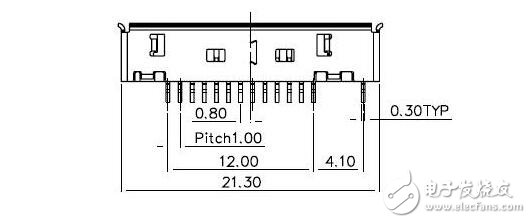
(1) The connector has the same liquid, but the pressure on the liquid surface is not equal, the pressure difference of the liquid surface is equal to the pressure difference caused by the difference in the liquid level of the two containers of the communicating device.
(2) The pressure on the liquid level of the connector is equal, but there are different liquids on the two sides that are not mixed with each other. The height of the two liquid surfaces is inversely proportional to the liquid density from the interface.
The connector principle has a wide range of applications in engineering. For example, various liquid level meters (water level gauges, oil level gauges, etc.), mercury vacuum gauges, liquid column air pressure gauges, differential pressure gauges, etc., are all made by applying the principle of the connected device.
Connector application:As connector applications continue to expand, they can be divided into two basic functions: signal transmission and electrical transmission. In the field of electronic applications, the distinguishing feature of these two types of connectors is that they must have current on their terminals. In other applications, the voltage provided by the terminals will also be considered as an important consideration, although the same type of terminals can be designed simultaneously. As a function of signal and power transmission, but in the application of a variety of similar contact methods, many electrical transmission connectors only have the need to transmit power at the terminal design as the sole purpose.
Signal transmission can be divided into two categories: analog signal transmission and digital signal transmission.
Regardless of the analog or digital signal connector, its required function should primarily protect the integrity of the transmitted voltage pulse signal, which should include the waveform of the pulse signal and its amplitude. The data signal is different from the simulated signal at the pulse frequency. The pulse transmission speed determines the maximum frequency of the protected pulse. The data pulse transmission speed is much faster than some typical simulation signals. Some pulses are in the connector. The transfer speed is close to the range of one billionth of a second. In today's microelectronics field, the connector is usually treated as a wire because the wavelength associated with increasing the frequency is comparable to that of the connector. size.
When the connector or an interconnect system such as a cable assembly is used for high speed data signal transmission, the corresponding description of the connector performance changes. It is especially important to replace the characteristic impedance of the resistor and the crosstalk in the interconnected system. Controlling the characteristic impedance of the connector becomes a major trend, and crosstalk is controlled in the cable. The characteristic impedance is so important in the connector that the geometry of the resistor is difficult to achieve completely uniform, and the connector size is small, and the possibility of crosstalk must be minimized. In the cable, the control of the geometry is easier to implement, and the characteristic impedance is also easy to control, but the length of the cable may cause potential crosstalk.
Controlling the characteristic impedance in the connector is done for this reason. In a typical open terminal area, the connector impedance (and crosstalk) is achieved by a reasonable distribution of the control terminals. For such signals, the ground ratio is a reflection of this distribution and the ground ratio is reduced. Of course, such a result would reduce the number of terminals available for transmitting signals. The location of the reason associated with the signal terminals is an important consideration. In order to avoid the reduction of the grounding terminal, a connector system having an integral ground plane has been developed. The geometry of the strips and lines has been introduced in the previous section. The overall ground plane allows for the use of signal terminals and increases the density of all transmitted signals from the connector.
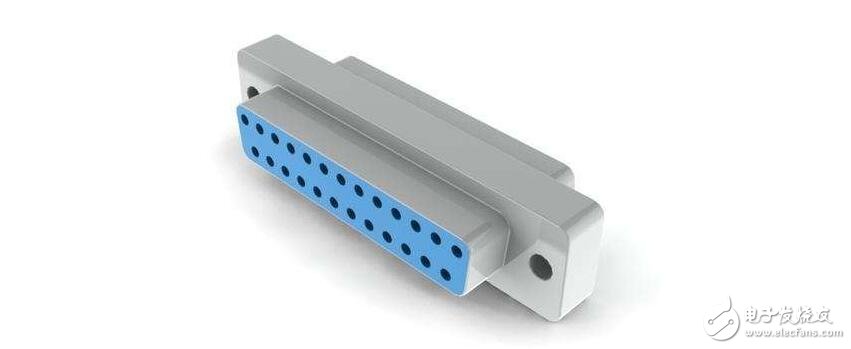
Power application
As mentioned earlier, the electrical connectors mentioned in the context are required to transfer power. Usually the voltage is very low. Commonly used are the following two methods of power transfer:
(1) dedicated to high levels of current power contact delivery
(2) Contact with parallel multi-turn signals. Each of them has advantages and disadvantages.
There are two differences between power transmission and signal transmission. The first, and most obvious, is used to deliver higher currents. The current delivered by the signal usually does not exceed 1 amp, and it does not exceed a few amps at most, and the current transmitted by electricity can reach tens or even hundreds of amps. The second point is the temperature rise due to Joule heat caused by the current. The Joule heat generated by the signal contact process is similar to the surrounding temperature. Conversely, the ratio of power transmission is again based on an increase in temperature, which in turn produces a corresponding ratio current. A 30 degree temperature rise is usually used as a standard for current ratios.
Therefore, in order to meet the stability requirements of current rating and performance, it is necessary to control Joule heat, which requires consideration of signal transmission while considering the transmission of electricity. Especially for terminals with high resistance, Joule heat is an important factor that must be minimized, and the resistance of the 17-contact surface must also be minimized to minimize the heat generated. From the viewpoint of material selection, it is of course to select a terminal having a high conductivity or a large cross-sectional area to reduce the electric resistance. In addition, increasing the transmission voltage or increasing the contact area can also reduce the resistance of the contact portion.
Higher crossovers, extra contact terminals, suggest increasing the size of the connector under contact pressure. That is, in practice, there is a limit on contributing electrical contacts, including the size of the contact media and contacts. In the use of contributing electrical contacts, the path of the power cable, the end of the cable's large power contact, and the size of the electrical contact can be a limiting factor.
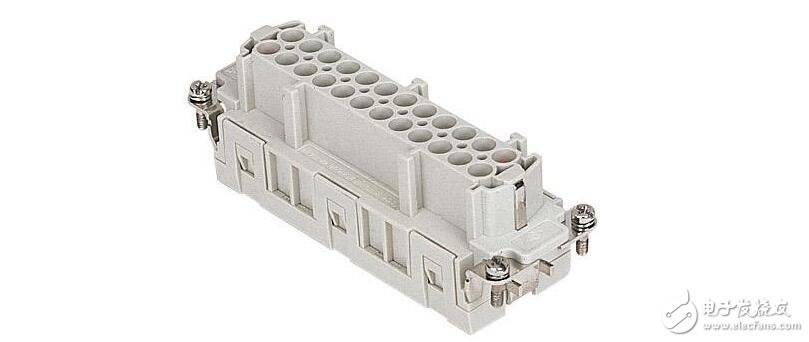
As additional restrictions are advocated in connector design, parallel multi-signal contacts allow more conventional connectors to be used to distribute electrical energy. These limits are first directed to ensuring the distribution of current through contact, while their thermal environment is as uniform as possible. The following three factors are the main ones:
1. The circuit should be a parallel flow of electrons; that is, if possible, all contact voltage drops should be the same. If different voltage drops are fundamental to the application, these circuits will be treated differently.
2. If possible, the thermal effects of contact are minimized, especially if a large current contact is avoided.
3. The impedance of the contact or any deviation calculated together in all signal assignments must be the same. For example, depending on the arrangement that exists at the time of contact, the large impedance of the connector's independent contact at the appropriate angle will vary. These differences should be considered when designing the assigned contacts.
With the rapid growth of consumer electronics, automotive electronics, communications terminal markets and the global connector production capacity moving to Asia and China, Asia has become the most promising place in the connector market, and China will become the fastest growing connector in the world. And the market with the largest capacity. It is estimated that the growth rate of China's connector market will continue to exceed the global average in the future. In the next five years, the average annual growth rate of China's connector market will reach 15%. By 2010, China's connector market capacity will reach 257. 100 million yuan.
The main supporting fields of electrical connectors include transportation, communication, network, IT, medical, home appliances, etc. The rapid development of product technology in the supporting fields and the rapid growth of the market have strongly led the development of connector technology. So far, the connector has developed into a series of products and specialized products with complete product categories, rich variety specifications, diverse structural types, professional direction subdivision, obvious industry characteristics, and standard system specifications.
In general, the development of connector technology has the following characteristics: high-speed and digital signal transmission, integration of various types of signal transmission, miniaturization and miniaturization of product volume, low cost of products, and termination method of contact parts Sticking, module combination, convenience of plugging and unplugging, etc. The above technology represents the development direction of the connector technology, but it should be noted that the above technology is not required for all connectors, and the connectors of different supporting fields and different use environments have completely different requirements for the above technologies. .
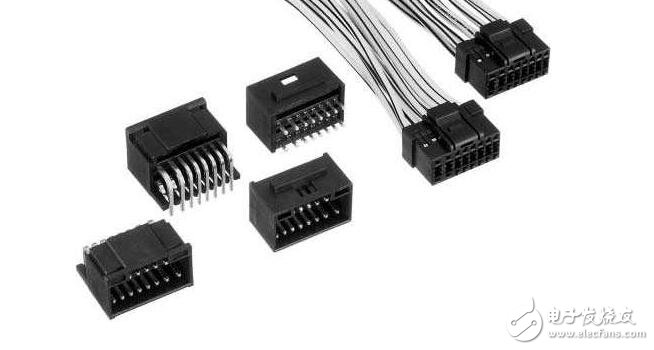
Direction of development
The development of connectors should be miniaturized (because many products face smaller and lighter development, there are certain requirements for the spacing and appearance, and the requirements for the products will be more precise, such as the most line-to-board Good choice of small pitch 0.6mm and 0.8mm), high density, high speed transmission, high frequency direction development. Miniaturization means that the center distance of the connector is smaller, and the high density is to achieve large core number. High-density PCB (printed circuit board) connectors have a total of 600 core contacts and up to 5000 cores for dedicated devices. High-speed transmission means that modern computer, information technology and network technology require that the time-scale rate of signal transmission reaches the megahertz band, and the pulse time reaches sub-milliseconds, so high-speed transmission connectors are required. The high frequency is to adapt to the development of millimeter wave technology, and the RF coaxial connectors have entered the millimeter wave working frequency band.
Application trend
According to Global Industry forecasts, driven by China and the economies of Asia, Eastern Europe and Latin America, the connector market will embrace the next five-year growth period, with global connector demand reaching $60 billion in 2012. According to the Global Industry report, the Asian connector market reached US$6.4 billion in 2010, and China's 2015 market growth rate will reach 20%.
· ITRI estimates that the global connector market will reach US$49.8 billion in 2010, a record high
· ITRI estimates that the global market for automotive connectors will reach $13.4 billion in 2011
· The global computer and peripheral connector market will reach $12.5 billion in 2011
· The global telecom data connector market will reach $10 billion in 2011
· Consumer connectors will continue to grow under the craze of digital homes and game consoles
consumer market
Research shows that the connector market continues to rise due to the demand for consumer electronics game consoles, MP3s, mobile phones, LCD TVs, and digital cameras. In-Stat pointed out that the global TV set-top box market value will reach 1.3 billion US dollars in 2014. According to the DisplaySearch survey report, global TV shipments will exceed 242 million units in 2010, an increase of 15% year-on-year, and is expected to exceed 260 million units by 2014.
In order to fully realize market competition, China's connector industry is operating independently in the market. In the international market, the top ten global manufacturers of connectors have been occupied by manufacturers in the United States, Japan, France and Taiwan. From the perspective of competition, Tyco Electronics, Amphenol, Molex and other three foreign investors Enterprises occupy nearly 80% of the market space for China's mobile communication terminals and micro-miniature precision connectors for digital products.
In mainland China, there are more than 1,000 connector manufacturers, including about 300 foreign-invested companies and more than 700 local manufacturers, mainly in the Yangtze River Delta and the Pearl River Delta. Domestic domestic connector manufacturers are generally small in scale and weak in strength; some military industrial enterprises have advantages in technology research and development, but the product application fields are mostly concentrated in military products, and the large-scale production capacity is insufficient, which is different from the company's targeted market segments. competition.
Medical market
Research firm BCC Research survey pointed out that the global market for home medical equipment will grow to $20.4 billion in 2012, with an annual growth rate of 6.8%. Medical electronics will be a new growth point for connector applications. The market predicts that by 2011, the connector market for the medical sector will reach $1.63 billion.
Mobile phone market
Connectors are one of the most important devices in a mobile phone. On average, each phone requires eight connectors. According to the Coda Research report, between 2010 and 2015, global smart phone shipments will reach 2.5 billion, with a compound annual growth rate of 24%. Data show that in the first quarter of 2010, China's 3G mobile phone sales reached 6.113 million units, an increase of 65.97% from the previous quarter. As the development of the mobile phone market continues to improve. The mobile phone connector market will continue to move up the trend.
· The types of connectors used in mobile phones are divided into internal FPC connectors and board-to-board connectors; externally connected I/O connectors, as well as batteries, SIM card connectors, and Camera Sockets.
· Affected by the demand market of 3G mobile phones and smartphones, the current development direction of mobile phone connectors is: low height, small pitch, multi-function, good electromagnetic compatibility, standardization and customization
car market
The automotive connector market is the largest connector segment, with a typical light vehicle with approximately 1,500 connection points. According to Bishop & Associate, the automotive connector market is expected to continue to grow and will reach a market size of $13.4 billion in 2011.
Computer market
According to a report by market research firm In-Stat, by 2014 global shipments of mobile computing devices including tablets, netbooks, smartbooks and laptops will maintain a compound annual growth rate of 19.1%. Global notebook shipments will reach 291 million units in 2014. The number of connectors in the computer is about 5-12 sets per unit, and the steady development of the computer market has driven the continued growth in connector demand.
November 16, 2024
September 18, 2023
June 28, 2024
June 28, 2024
이 업체에게 이메일로 보내기
November 16, 2024
September 18, 2023
June 28, 2024
June 28, 2024

Privacy statement: Your privacy is very important to Us. Our company promises not to disclose your personal information to any external company with out your explicit permission.

Fill in more information so that we can get in touch with you faster
Privacy statement: Your privacy is very important to Us. Our company promises not to disclose your personal information to any external company with out your explicit permission.